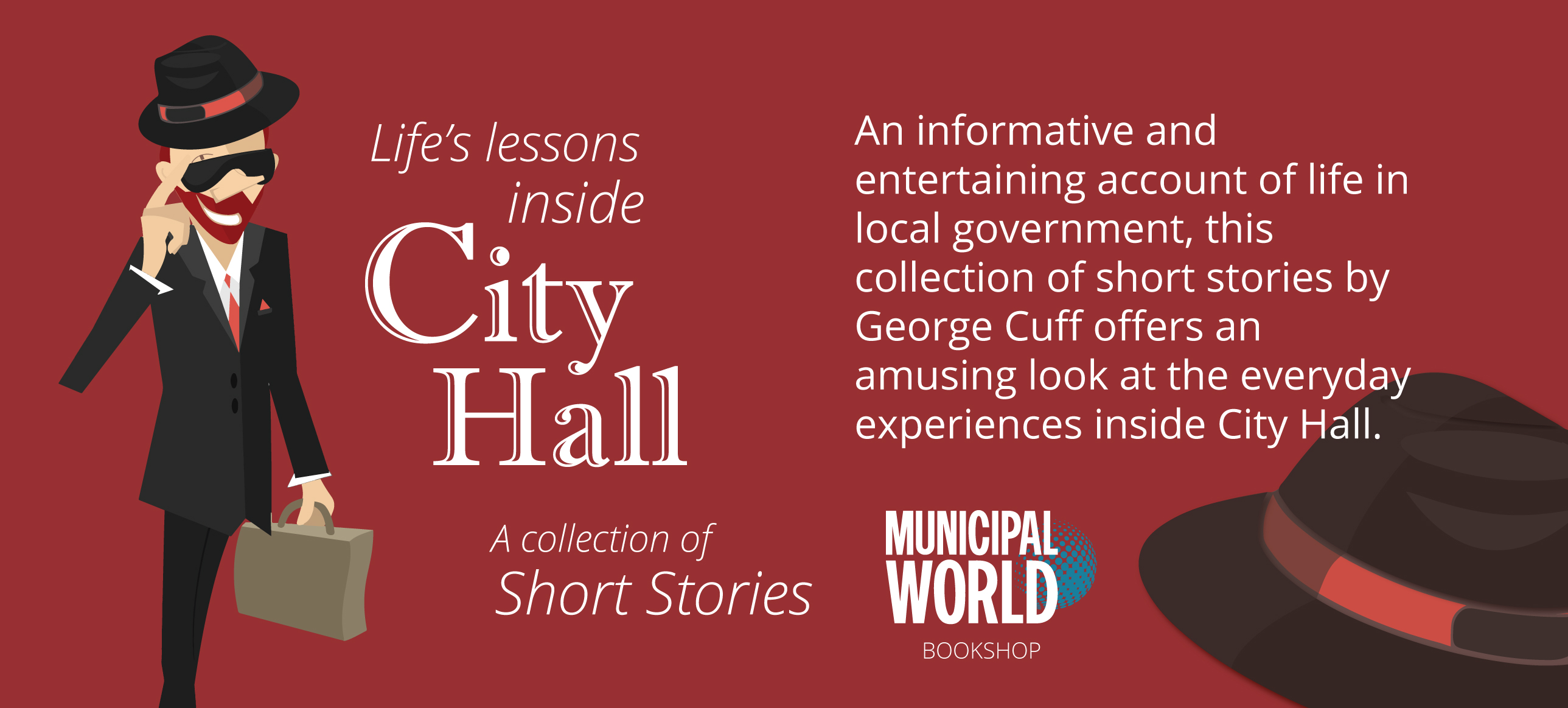The library is not a department: Why public library boards matter
 Jonathan Scott, Ward 2 councillor in the Town of Bradford West Gwillimbury, is past vice-chair of the Bradford West Gwillimbury Public Library Board and a staunch supporter of the independence of library boards. Photo: Paul Novosad
Jonathan Scott, Ward 2 councillor in the Town of Bradford West Gwillimbury, is past vice-chair of the Bradford West Gwillimbury Public Library Board and a staunch supporter of the independence of library boards. Photo: Paul Novosad
At age 14, one of the earliest summer jobs available in Bradford was at the local library. Pages shelved books, assisted patrons, and tidied up after story time. For teenagers in a small town, the role offered more than employment – it provided a front‑row seat to the community’s beating heart.
Young visitors often spent hours during the summer wandering the stacks, discovering biographies, novels, and histories that opened worlds beyond the rural community. That quiet, welcoming space – free to enter and free to explore – played a formative role in shaping future paths.
Decades later, serving as vice‑chair of the Bradford West Gwillimbury Public Library Board and as a member of town council highlighted the importance of library governance.
Experience in both municipal and library leadership highlights a point often misunderstood in local government: a public library is not a town department, and a public library board is not an advisory committee. In Ontario, libraries are an independent, statutory body, and that independence isn’t a bureaucratic quirk. It’s the foundation of everything libraries stand for and how we guarantee freedom of expression.
Over the past few years, that principle has been tested in Bradford West Gwillimbury through two conflicts.
In 2023, library workers went on strike. In 2025, a dispute erupted over whether Council could dip into the library board’s reserve funds without its permission. These conflicts placed council members at odds, not out of preference for confrontation, but in defense of the law and the principle of the library itself.
This is a story about public library governance in Ontario – not abstract theory, but a look at what happens when governance goes sideways, and what can be learned from getting it right.
The Legal Framework
In Ontario, public libraries are governed by the Public Libraries Act, which sets out a clear model: a municipality may establish a library, but it must do so through a library board, which becomes a separate corporate entity responsible for delivering library services to the community.
The board is appointed by council, but it operates at arm’s length. It hires the CEO, manages the budget inclusive of a grant from council, sets policies and controls the library’s operations. That includes decisions about staffing, programming, collections and service hours. It even holds its own bank accounts. Council cannot direct it.
Why does this matter? Because libraries are public institutions with a democratic mission: to support learning, literacy and access to information regardless of income, background or politics.
Giving an independent board that authority protects the library from short-term political interference. It ensures that a council cannot decide to remove controversial books, cancel programming or rewrite the library’s budget on a whim. It’s a safeguard.
In Ontario, this governance model dates back to at least 1882. It was reaffirmed in 1997, when the Local Control of Public Libraries Act changed the legislation as part of former premier Mike Harris’s municipal downloading, but expressly retained the independence of boards.
Then-Minister Isabel Bassett made it clear: “We are maintaining the concept of the library board, an arm’s-length organization that is independent from municipal council. That’s the key.”
That is still the key.
When Autonomy Meets Tension
In the summer of 2023, Bradford West Gwillimbury library staff – represented by Canadian Union of Public Employees (CUPE) – went on strike. The primary issue was wages. Many of the library workers, most of them women, were making little more than minimum wage.
The library board is the official employer. But of course, the bulk of its funding comes from council. So even though not at the bargaining table, council’s posture mattered. And for a time, the posture was resistance.
The mayor warned that agreeing to wage increases might create “precedent” across the municipality. He had several acrimonious disputes with the striking workers and their supporters, at council meetings and in the press.
This strike became an untenable situation. While there was a duty to support council decisions, the prolonged dispute prompted public support for the workers, with efforts focused not on undermining the board but on encouraging council to fund a fair agreement if the board advanced one.
Council did not.
The strike stretched to seventy-one days through the entire summer holidays with no deal, the second-longest library strike in Ontario history. Eventually, an order came for binding arbitration. That process gave the workers a raise, but it didn’t repair the trust.
What it did do was reaffirm the legal separation between council and the board, and the reality that creates. Council couldn’t impose terms, but neither could the board make progress without the funding flexibility council withheld. That tension – between autonomy and financial dependency – is part of the system. But it only works if both sides collaborate in good faith.
Can Council Take Library Money?
The second flashpoint came in 2025, when the library building needed a major boiler replacement. The cost was around $200,000. The question: who would pay?
Bradford West Gwillimbury’s municipal reserves had been depleted over several years with some cuts made to the capital levy in previous terms. In fact, four members of council had previously tried to restore the reserve fund with a modest increase to the levy earlier this term. That motion failed on a tie vote. Now, with a bill due to replace a boiler in a town-owned building the library uses coming due a bit earlier than anticipated, there was pressure because the reserve fund was not in healthy shape.
The mayor argued that the library board’s reserve funds – money the board had saved from previous surpluses – should be used to pay for the boilers. The catch? He believed we should take the money without the board’s approval.
That crossed a line.
The library board’s reserve funds are not town money. They’re board-controlled funds, held in a separate account, for library purposes. By law, only the board can authorize their use. As was argued at the table, council can ask but not take. It can collaborate but not dictate.
A point of order – a procedural right councillors have when they believe the rules are being breached – was raised. The mayor refused to hear it. (That, in and of itself, is out of order.)
Eventually, a legal opinion confirmed what was said from the beginning: the library board must approve any use of its reserves. Council cannot usurp their authority.
In the end, the boilers were funded through the town’s capital budget – the right way. But not before revealing how poorly understood library governance still is.
Council-Library Board Relations
There’s a better way. Experience from both board leadership and council service demonstrates that the following principles lead to better governance:
- Respect the independence. The board is not a department. Its members are fiduciaries; once appointed, they serve the library, not council’s political agenda.
- Fund fairly, not blindly. Council sets the library’s annual grant. In today’s context, that represents the bulk of the library budget. But beyond that, it’s not council’s job to micromanage. Approve the funding envelope and let the board allocate it within the estimates presented to council.
- Collaborate early. If there’s a big capital need coming, don’t surprise each other. Use MOUs, joint planning and honest communication. When colleagues work together, they save time, money, and grief.
- Let the board govern. Library boards exist to keep politics out of programming, collections and staffing. That protects intellectual freedom, inclusion and public trust. Let them do their job.
Why This Still Matters
Libraries remain one of the last truly public, democratic, and inclusive spaces – valued not only for their services but for their role as accessible community institutions. One notable contribution of the Bradford West Gwillimbury Public Library Board was the elimination of late fines, a step taken to increase access and equity. Recidivism did not increase; however, library use did.
Libraries offer information without judgment, programs without paywalls and stories that stretch the imagination of every child who wanders in.
Protecting that mission means understanding how library governance works. It means Councils that don’t see boards as annoyances or obstacles, but as partners. It means knowing independence and integrity go hand-in-hand.
So if you’re a councillor, CAO or mayor reading this: take time to learn how the library works. Talk to the board. If you’re in Ontario, read the Public Libraries Act. Respect the structure – even when it challenges you. Maybe especially when it challenges you; that’s what steady leadership is all about.
Because when we get it right, the result is more than good governance. It’s a stronger library. And that, in turn, makes for a stronger community. MW
✯ Municipal World Executive and Essentials Plus Members: You might also be interested in Brandon Fratarcangeli’s article: The relationship between public library boards and municipalities.
Jonathan Scott is the Ward 2 councillor in the Town of Bradford West Gwillimbury and past vice-chair of the Bradford West Gwillimbury Public Library Board.
Related resource materials:
- Make your municipality a socially connected community
- 5 ways to build a culture of belonging through arts and culture
- Denver’s peer navigators help clients experiencing poverty and homelessness



